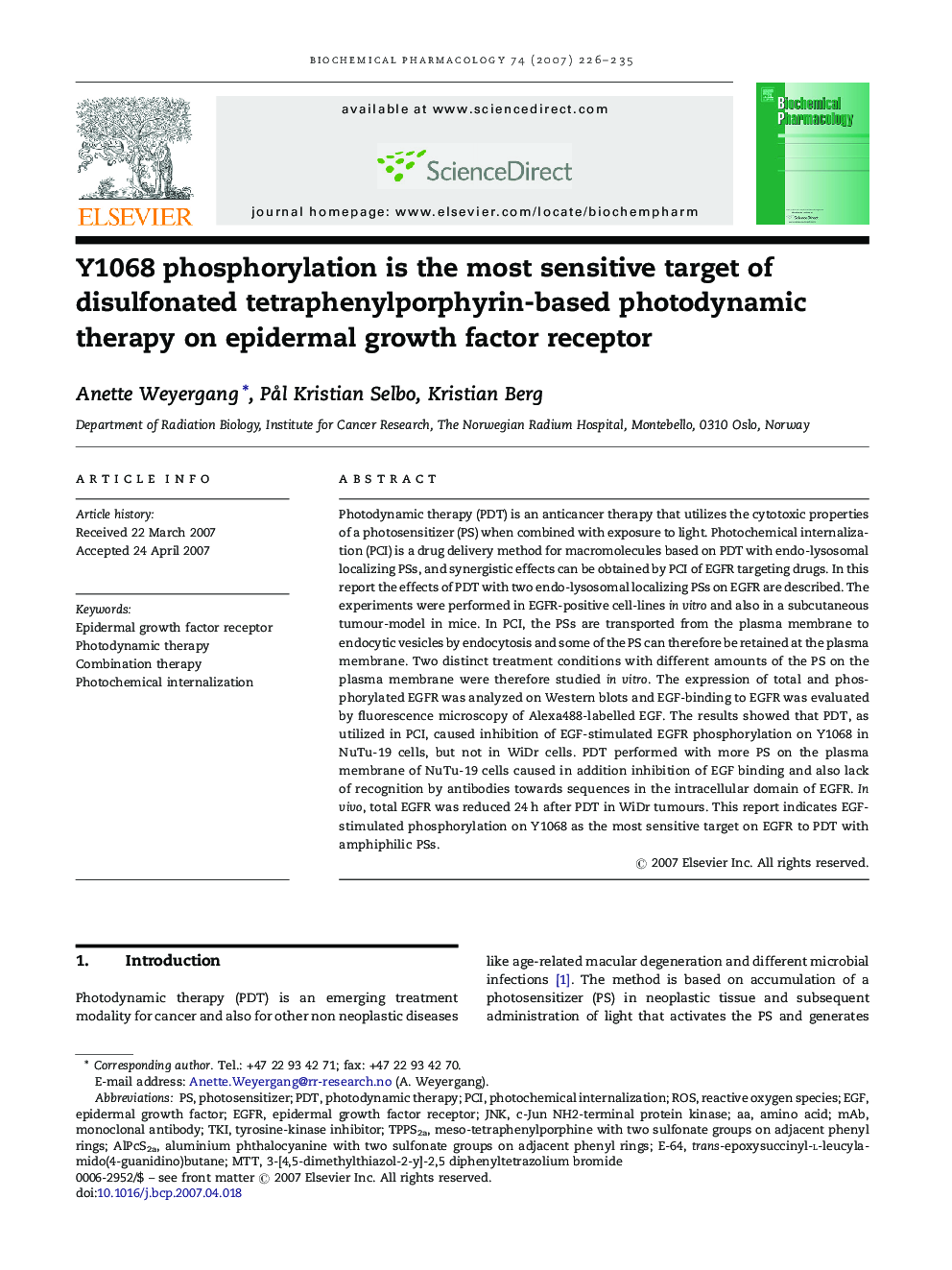| Article ID | Journal | Published Year | Pages | File Type |
|---|---|---|---|---|
| 2515466 | Biochemical Pharmacology | 2007 | 10 Pages |
Photodynamic therapy (PDT) is an anticancer therapy that utilizes the cytotoxic properties of a photosensitizer (PS) when combined with exposure to light. Photochemical internalization (PCI) is a drug delivery method for macromolecules based on PDT with endo-lysosomal localizing PSs, and synergistic effects can be obtained by PCI of EGFR targeting drugs. In this report the effects of PDT with two endo-lysosomal localizing PSs on EGFR are described. The experiments were performed in EGFR-positive cell-lines in vitro and also in a subcutaneous tumour-model in mice. In PCI, the PSs are transported from the plasma membrane to endocytic vesicles by endocytosis and some of the PS can therefore be retained at the plasma membrane. Two distinct treatment conditions with different amounts of the PS on the plasma membrane were therefore studied in vitro. The expression of total and phosphorylated EGFR was analyzed on Western blots and EGF-binding to EGFR was evaluated by fluorescence microscopy of Alexa488-labelled EGF. The results showed that PDT, as utilized in PCI, caused inhibition of EGF-stimulated EGFR phosphorylation on Y1068 in NuTu-19 cells, but not in WiDr cells. PDT performed with more PS on the plasma membrane of NuTu-19 cells caused in addition inhibition of EGF binding and also lack of recognition by antibodies towards sequences in the intracellular domain of EGFR. In vivo, total EGFR was reduced 24 h after PDT in WiDr tumours. This report indicates EGF-stimulated phosphorylation on Y1068 as the most sensitive target on EGFR to PDT with amphiphilic PSs.
